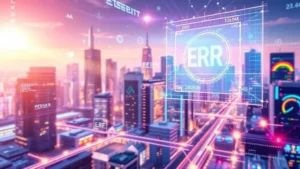The future of ERP systems is poised for significant transformation as technology continues to advance. One of the most exciting developments is the rise of integrated platforms that combine ERP with other business applications. This integration allows for seamless data flow and enhanced collaboration across departments. As businesses seek to become more agile, these integrated solutions will play a crucial role in driving efficiency and innovation.
Moreover, the incorporation of advanced analytics and business intelligence tools within ERP systems is expected to grow. These features enable organizations to gain deeper insights into their operations and make data-driven decisions. Predictive analytics, in particular, can help businesses anticipate market trends and customer needs, giving them a competitive edge. As a result, companies will be better equipped to adapt to changing environments and seize new opportunities.
Lastly, sustainability will become a key focus for ERP vendors and users alike. As businesses strive to reduce their environmental impact, ERP systems will need to support sustainable practices. This includes tracking resource usage, optimizing supply chains, and ensuring compliance with environmental regulations. By embracing sustainability, companies can not only enhance their corporate responsibility but also appeal to a growing base of environmentally-conscious consumers.



